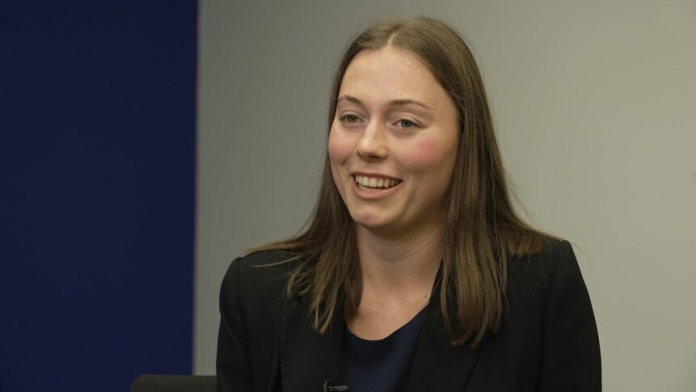A woman who celebrated her 21st birthday on the day of Australia’s federal election in May has become the nation’s youngest-ever senator, according to AP News.
Charlotte Walker, a former union official, secured an unexpected win in South Australia under the country’s complex ranked-choice voting system.
There’s a few feelings. Obviously, there’s a lot of pressure.
Initially considered a long shot, Walker clinched the governing Labour Party’s third Senate seat for the state—a rare achievement, as third-choice candidates seldom succeed. Despite receiving the lowest vote count among South Australia’s six newly elected senators, her victory was officially confirmed by the Australian Electoral Commission on Tuesday.
I want to do a good job for South Australians, but I also want to show young people, particularly young women, that this is achievable and this is something that they can do also. I’m also really excited. Not many people my age get to … go to Canberra and have the ability to contribute in the way that I will.
Walker, who begins her six-year term on 1 July, acknowledged the challenges ahead. A federal lawmaker’s base salary exceeds AU$205,000 (US$133,000) per year, marking a significant shift for the young politician.
Before Walker, the youngest senator was Greens’ Jordon Steele-John, elected in 2017 at age 23. Australia’s youngest-ever federal lawmaker remains Wyatt Roy, who entered the House of Representatives in 2010 at just 20 years old. Roy served two terms before losing his Queensland seat.
The 3 May election saw significant swings, often bringing more women into Parliament in seats their parties had not anticipated winning. However, such newcomers frequently lose their positions when electoral tides shift in subsequent elections.
Prime Minister Anthony Albanese expects women to make up 57% of Labour’s lawmakers in the new Parliament, up from 52% in his first term. This marks a milestone in the party’s decades-long effort to improve female representation.
Albanese’s government defied historical trends by not losing a single seat in this election, a first since 1966. Labour is projected to hold 94 seats in the 150-member House of Representatives, up from 78 in the previous term.
